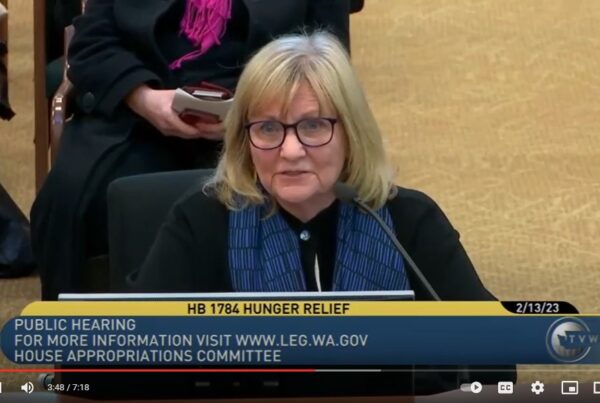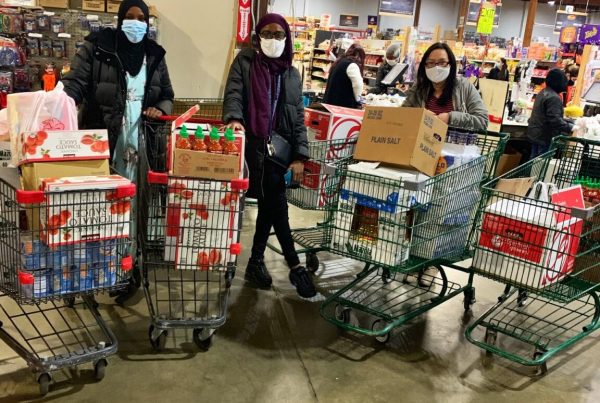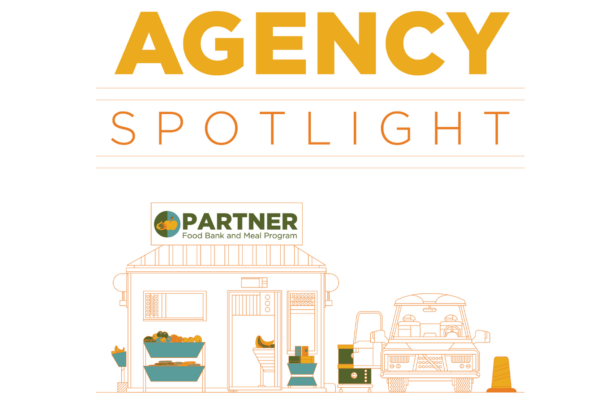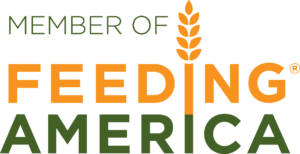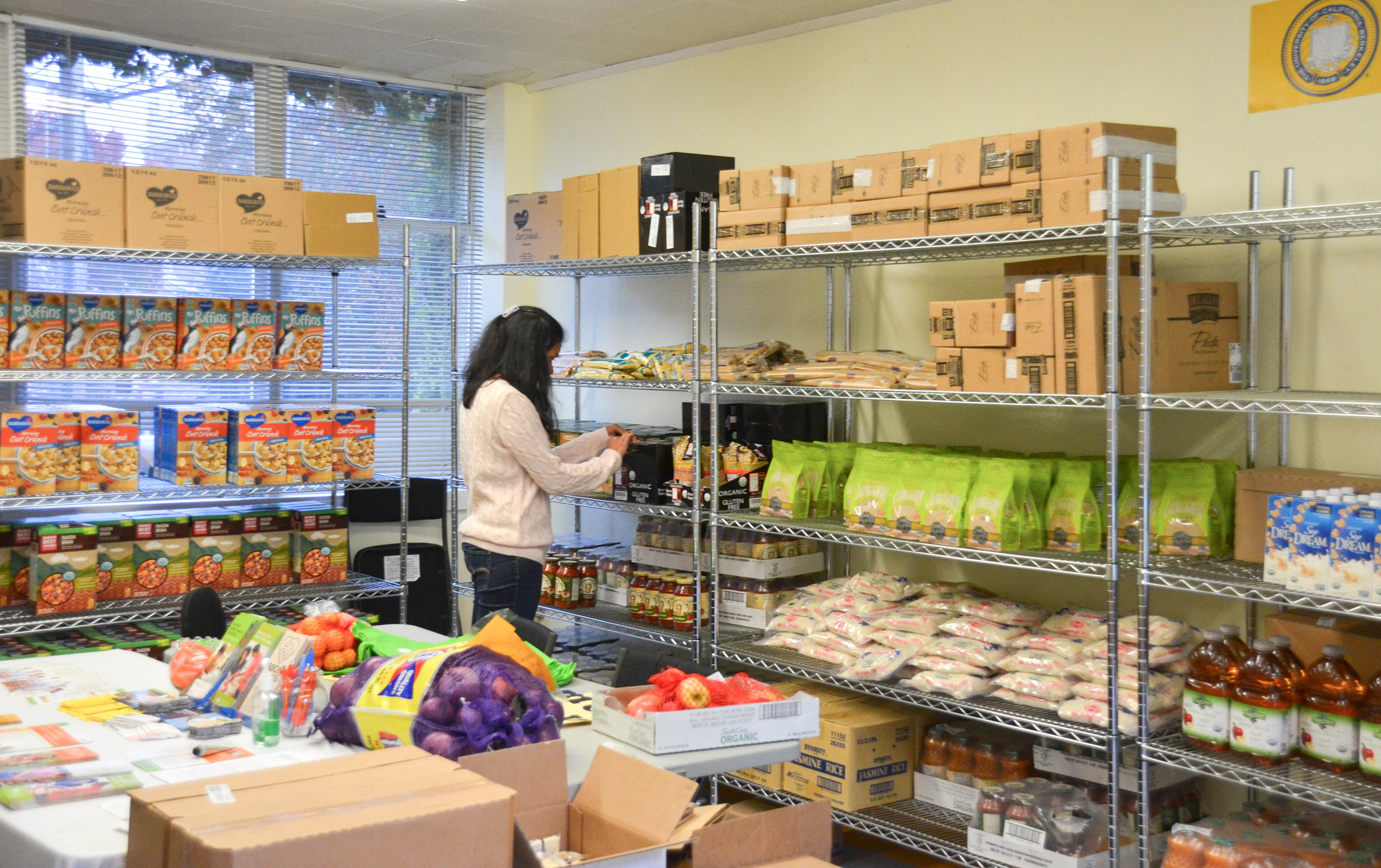
Faculty and staff at the Evergreen State College had been searching for a sustainable way to address something they were regularly witnessing on campus—hungry students not knowing where their next meal would come from. The college tried snack shelves, peanut butter and jelly sandwich stations, and other ways to distribute food to students, but found that, working independently, they were unable to sustain the programs and keep up with demand.
That’s when campus staff contacted the Thurston County Food Bank for help. The nonprofit, which provides county-wide service, partnered with Evergreen’s Center for Community Based Learning and Action. The Center set aside dedicated space and a work-study position for a new satellite food bank. Volunteer support for this satellite pantry was shaky for the first few years and awareness of student hunger was low. To address these issues, Thurston County Food Bank and Evergreen applied for a VISTA volunteer placement, created a Google-based signup system for student volunteers, and conducted outreach to increase awareness about student hunger.
Today the Evergreen State College Satellite Food Bank serves 50 students through a weekly distribution.
Hunger was also a concern on the campus of South Puget Sound Community College, which developed its own student-initiated satellite food bank in partnership with the Thurston County Food Bank last year. The college administration was strongly in support of the idea and set aside prominent space in the Student Union, which is a focal point for students and community members as they enter the building. They staggered the distribution hours of the food bank from the hours of the adjacent college bookstore so they wouldn’t interfere with food sales. The program serves 25 students through three weekly distributions.
“The goals of these pantries were to address student hunger, engage student volunteers, and increase awareness of the fact that student hunger exists and can be a major barrier to success in higher education,” said Heather Sundean, Operations Manager for the Thurston County Food Bank.
Thurston County Food Bank learned that having refrigeration at both sites was key, so students could receive both shelf-stable and fresh foods. Clear directional signage has also helped with visibility for the programs. And, although they receive positive anecdotal feedback regularly, one of the challenges of these satellite sites is evaluating its effectiveness using quantitative methods.
“Getting data about on-campus hunger and awareness of hunger issues can be difficult, as a great deal of administrative support is required to survey the student body and students tend to already be over-surveyed,” says Heather. “We are continuing to figure out how to gather this kind of information and how to evaluate the program’s success.”
Watch a video about the South Puget Sound Community College pantry and its founder, Kate Armstrong, bu clicking here.
Read an article about the Evergreen State College food bank and the VISTA volunteer who helped it thrive, Jordan Billiot, by clicking here.
Interested in starting your own campus satellite food program? Check out these excellent resources:

